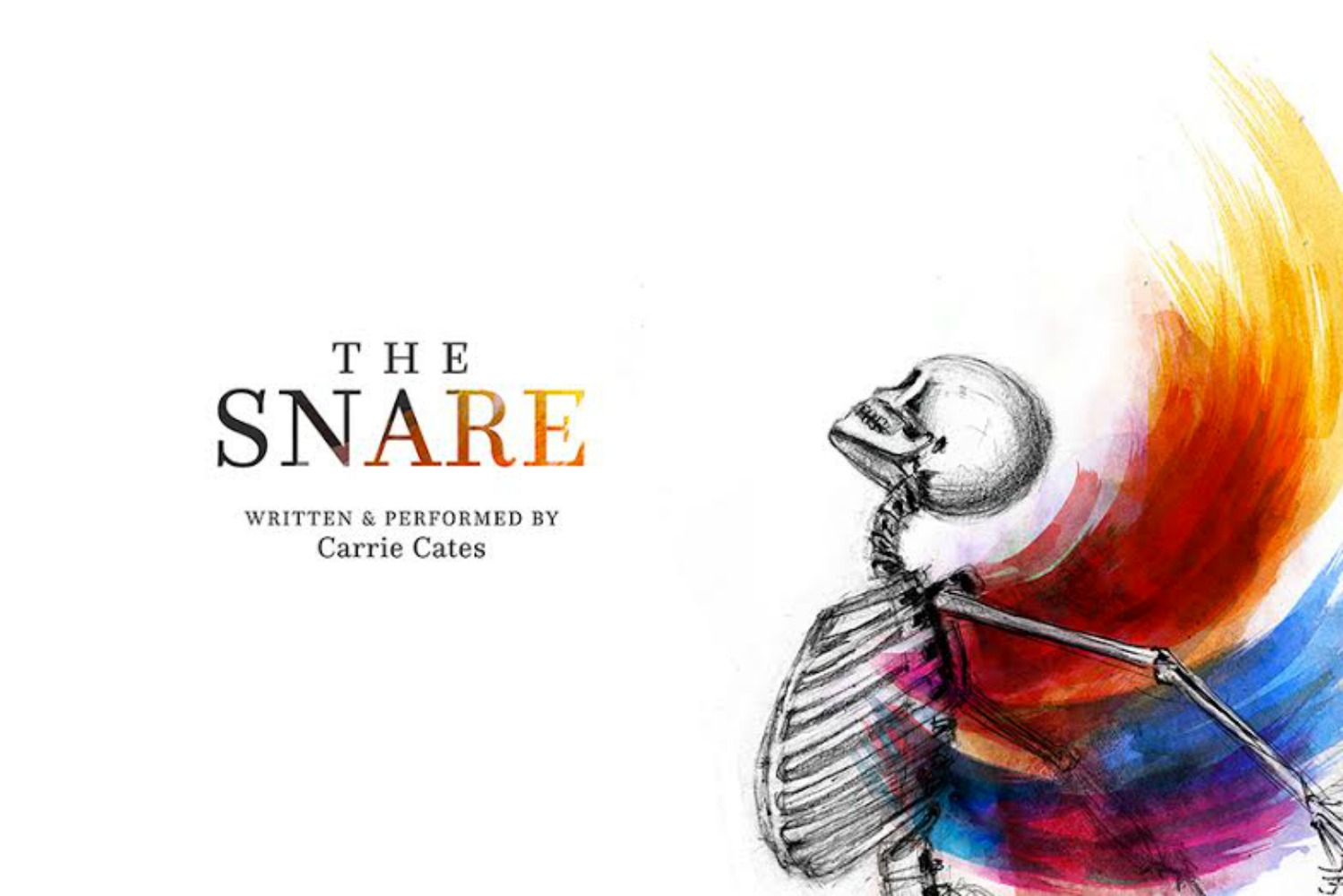At the end of every academic year, we host the Integrative Project symposium, in which The Seattle School’s alumni, current students, faculty, staff, and the Seattle community at large are invited to witness and celebrate the bold, thoughtful, and creative work of our graduating Master of Divinity and MA in Theology & Culture students.
For these students, the Integrative Project serves as a capstone of their time in graduate school—born out of years of study, countless conversations with peers and faculty, and each student’s distinctive embodiment of text, soul, and culture. Their work utilizes a blend of research methodology, personal exploration and engagement, and The Seattle School’s unique lens.
In this video, Carrie Cates (MDiv & MATC) presents on her project, “The Snare: Theology In and Through Theater.” Carrie talks about writing, developing, and performing her one-woman play, The Snare, ultimately arguing for the vitality—and necessity—of bringing theatrical works into theological discourse. “Theater not only adds to theological conversation,” she says, “it is a necessary part of doing theology, of doing the actual work of theology enfleshed and embodied.”
The Snare is an exploration of death, life, and religious ritual, and the title comes from Psalm 124:7: “We have escaped like a bird from the snare of the fowlers; the snare is broken, and we have escaped!” Carrie has performed the play in three iterations, including a performance in the Arts Series at the American Academy of Religion’s annual conference—which Carrie describes as one of the more bizarre performances of her life, since “Theologians don’t really know what to do with people who exist from the neck down.” (You can read more about that experience in Carrie’s blog “The Body Says Yes.”)
Carrie talks about whole-bodied theology and what she calls “cruciform art-making,” and she challenges pastors and theologians to allow artists to invite us into weighty conversations that move beyond the intellect. Toward the end of this video, Carrie performs a brief excerpt from the play. Her work is stunning and gorgeous, and it is difficult to engage it without being changed.
“I believe that there is something about theater, especially theater that deals with these huge theological categories like death, like dying, like mourning, like religious ritual, that actually itself becomes a ritual whereby we can begin to engage, we can begin to hold the form of things that feel too big and difficult to talk about. […] There is so much room in the academy, in our school, in our churches, for engagement theologically that is embodied, that is enfleshed, that enlarges and estranges. It makes us not know the things that we think we know, and it makes us do it in community. Is that not part of the kingdom of God?”

